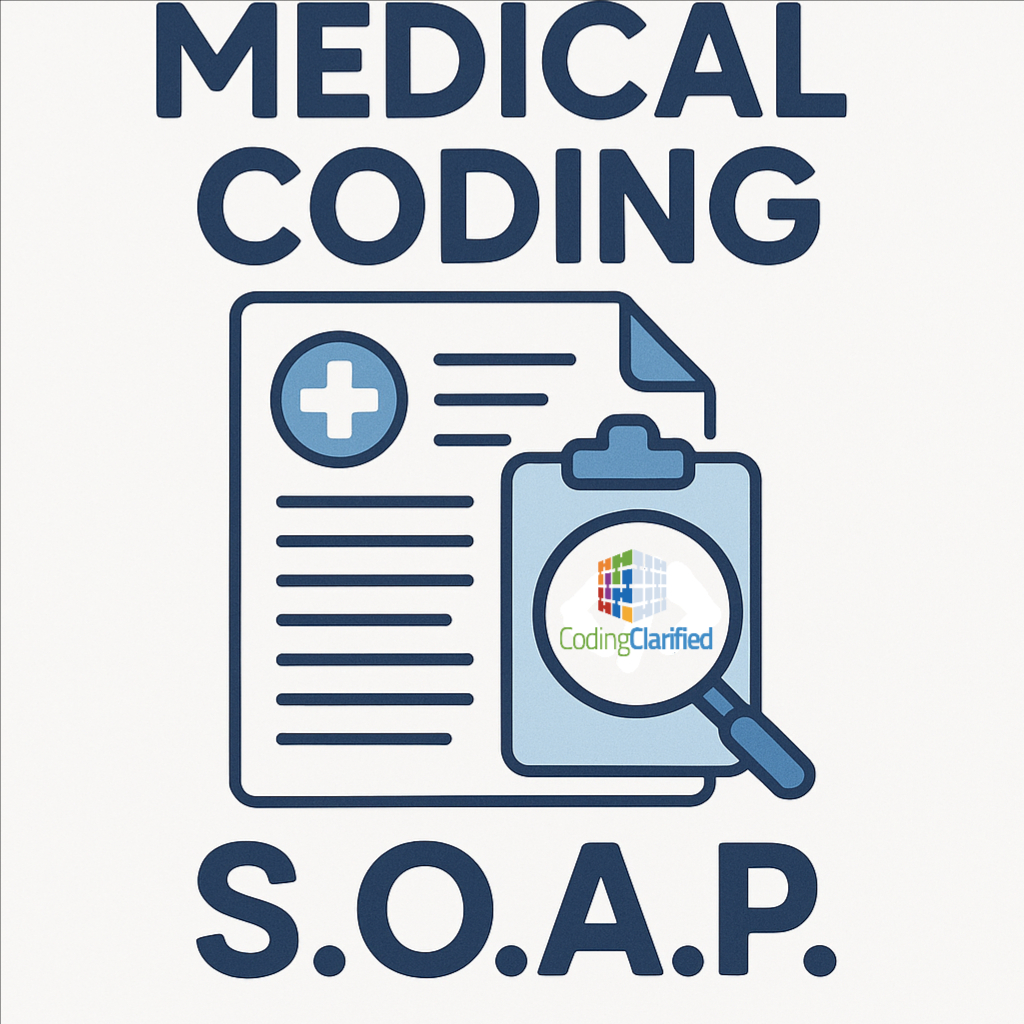Understanding SOAP Notes in Medical Coding
In medical documentation and medical coding, SOAP notes are one of the most widely used formats for recording patient encounters. SOAP stands for Subjective, Objective, Assessment, and Plan. This structured approach ensures providers document consistently while giving coders the information they need to assign accurate diagnosis and procedure codes.
What Does SOAP Stand For?
S – Subjective
This section captures the patient’s perspective:
-
Chief complaint (reason for visit)
-
Symptoms described in the patient’s own words
-
Medical history, family history, lifestyle, and risk factors
Example: “Patient reports shortness of breath and fatigue for the past three days.”
O – Objective
This part includes clinical observations and measurable data:
-
Vital signs (blood pressure, temperature, pulse, oxygen saturation)
-
Physical examination findings
-
Laboratory results and imaging studies
Example: BP 160/95, chest X-ray reveals mild infiltrates.
A – Assessment
This is the provider’s clinical judgment or diagnosis:
-
Differential diagnoses considered
-
Primary condition identified
-
Status of chronic conditions
Example: “Likely community-acquired pneumonia. Rule out cardiac involvement.”
P – Plan
This details the next steps for treatment and follow-up:
-
Prescriptions and therapy
-
Procedures ordered
-
Referrals to specialists
-
Patient education and instructions
Example: “Start oral antibiotics, order CBC, follow-up in 5 days.”
Why SOAP Notes Matter for Medical Coding
Accurate and complete SOAP documentation is essential for coders because:
-
Supports Medical Necessity – Coders need both subjective symptoms and objective findings to justify diagnoses.
-
Links Diagnosis to Treatment – The assessment and plan show why a procedure or service was performed.
-
Improves Coding Accuracy – Detailed documentation reduces the risk of upcoding, downcoding, or denials.
-
Enhances Compliance – SOAP notes meet payer, CMS, and legal requirements for proper documentation.
Example: SOAP Note to ICD-10-CM and CPT Code
SOAP Entry:
-
S: Patient complains of cough, fever, and chest pain.
-
O: Temp 101.8°F, crackles in left lung, chest X-ray confirms pneumonia.
-
A: Diagnosis – J18.9 Pneumonia, unspecified organism.
-
P: Prescribed azithromycin, ordered follow-up in 7 days.
Coding Result:
-
ICD-10-CM: J18.9 – Pneumonia, unspecified organism
-
CPT: 99213 – Office or other outpatient visit, established patient, low to moderate complexity
Medical Coding Signs and Symptoms
Key Takeaway
SOAP notes provide the foundation for accurate medical coding. By following the Subjective, Objective, Assessment, and Plan structure, providers ensure their notes clearly communicate the patient’s condition and medical decision-making. Coders rely on this structure to select the correct ICD-10-CM, CPT, and HCPCS codes, ensuring claims are accurate, compliant, and supported by strong documentation.

